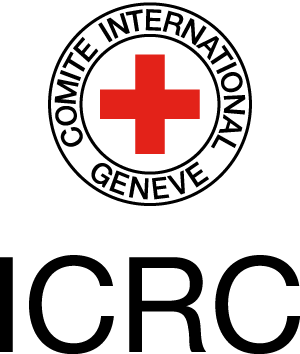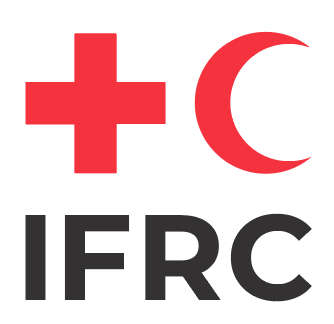The continuation of this blog series will focus on the highlights from the recent Alumni of the 2024 Cash Practitioner Development Programme, allowing practitioners to share what they have learnt and experienced during their Cash School learning deployments.
The Cash Practitioner Development Programme aims to expand the ready pool of cash experts available to deliver humanitarian cash assistance, and to strengthen the community of qualified practitioners with up-to-date skills in all areas of cash assistance. Cash deployments are a key element of participants learning schedules, these deployments aim to enhance skills and confidence in implementing cash based assistance. Some deployments are run in partnership with NORCAP, with practitioners accessing deployment opportunities from a range of humanitarian agencies.
Meet Flavia Fernandez Silva from Our 2024 Cash Practitioner Development Programme!
Flavia is from Brazil and has worked for the past four years with CashCap/NORCAP. In her role, she has provided support to cash experts deployed on missions around the world. She joined the Cash School to gain firsthand insight into the work of cash experts. Through her participation, she developed a strong interest in cash advocacy and data management.
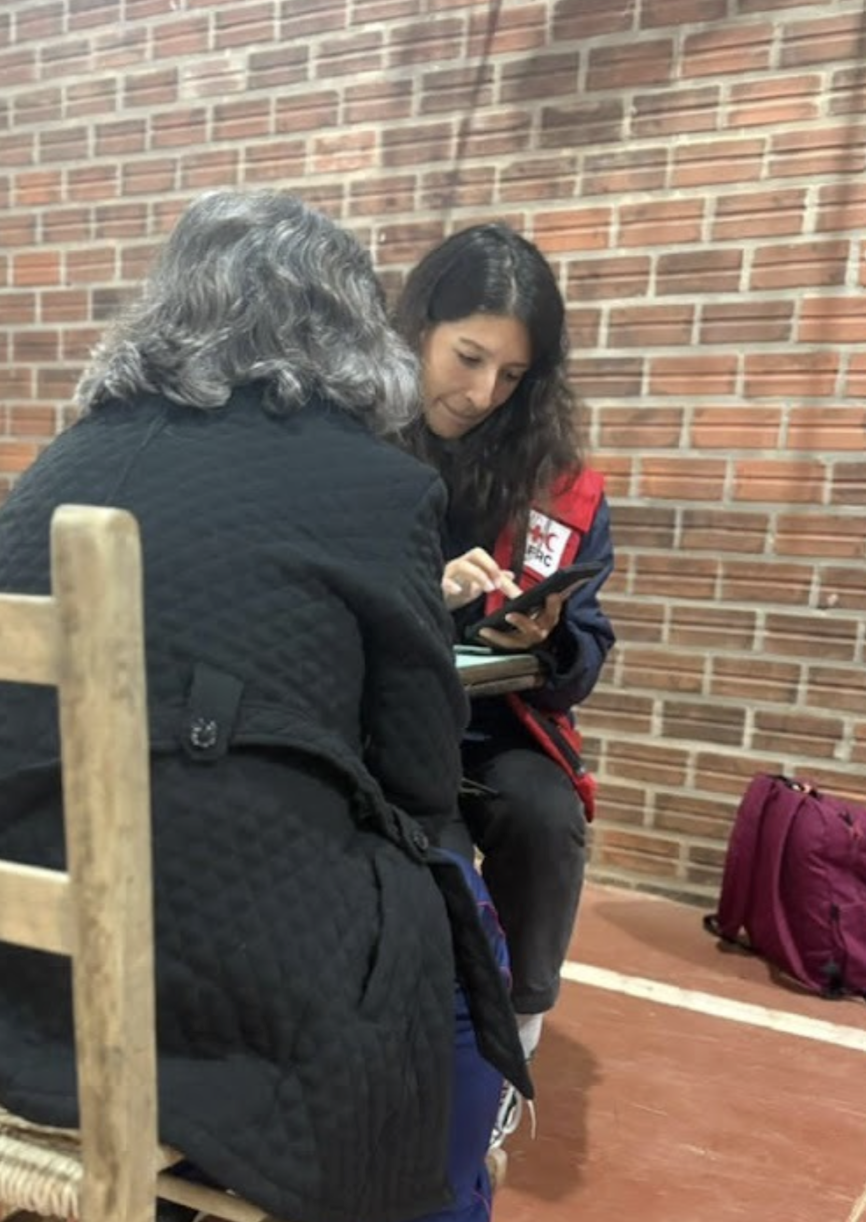
What was your experience with cash prior to undertaking the CPDP training program?
I have worked in a support function at the headquarters level, supporting CashCap experts in their missions around the world. Although I have been with the team for four years, my experience had always been very peripherical and theoretical. Before that, I had also worked with Caritas in Brazil, which had a cash-in-envelop programme for vulnerable refugees and asylum seekers.
What motivated you to pursue the CPDP program and expand your knowledge in cash operations?
I wanted to understand better the work the CashCap experts. How to carry out the work and to be in a stronger position to able to better support them, as well as to contribute more meaningfully to the strategic and thematic decisions in the team. I would also like to join other missions within the movement as a delegate, and the CPDP has been key in capacitating me for that.
Where did you go during your deployment phase?
I first had one remote deployment with the Cash Centre for Excellence, hosted by the Lebanese Red Cross. There, my work focused on supporting the development of an advocacy plan for the region, as well as support with punctual advocacy activities such as guidelines and videos. My second deployment was in Rio Grande do Sul, Brazil, the state which was severely affected by floods in 2024. There, the IFRC implemented the largest cash programme in the region, and I joined them at the last stages, where the focus was to liaise with communities, organise and attend registration events, manage the database and conduct the payments.
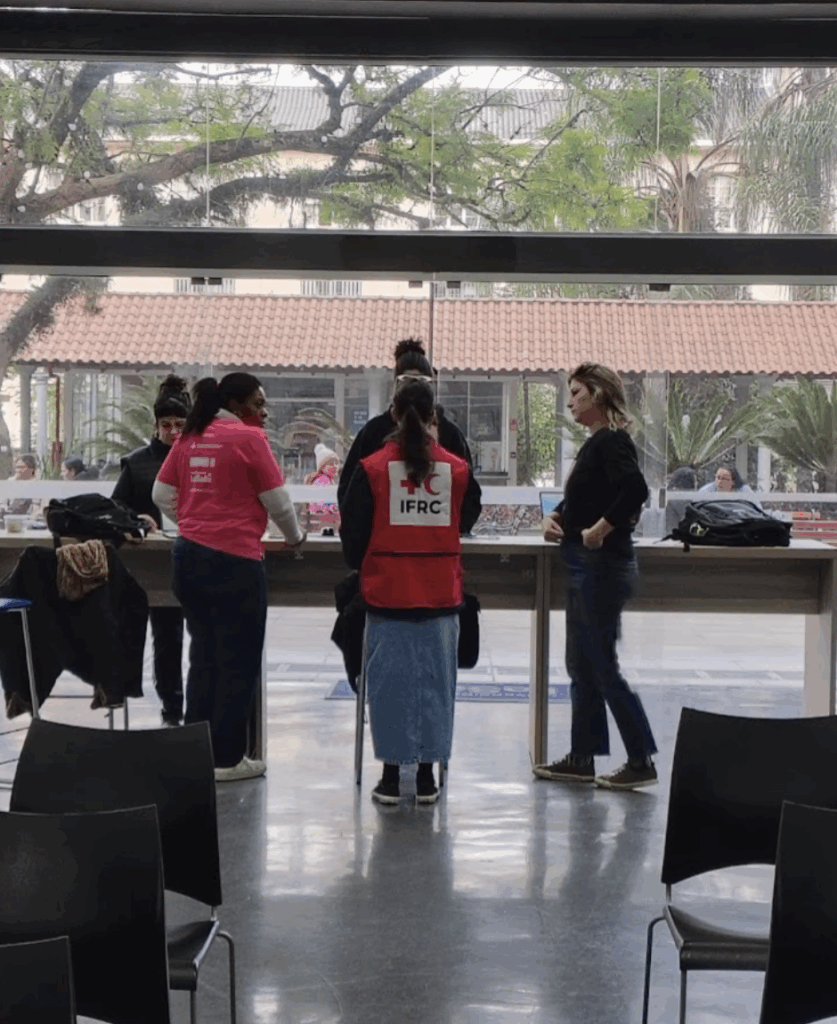
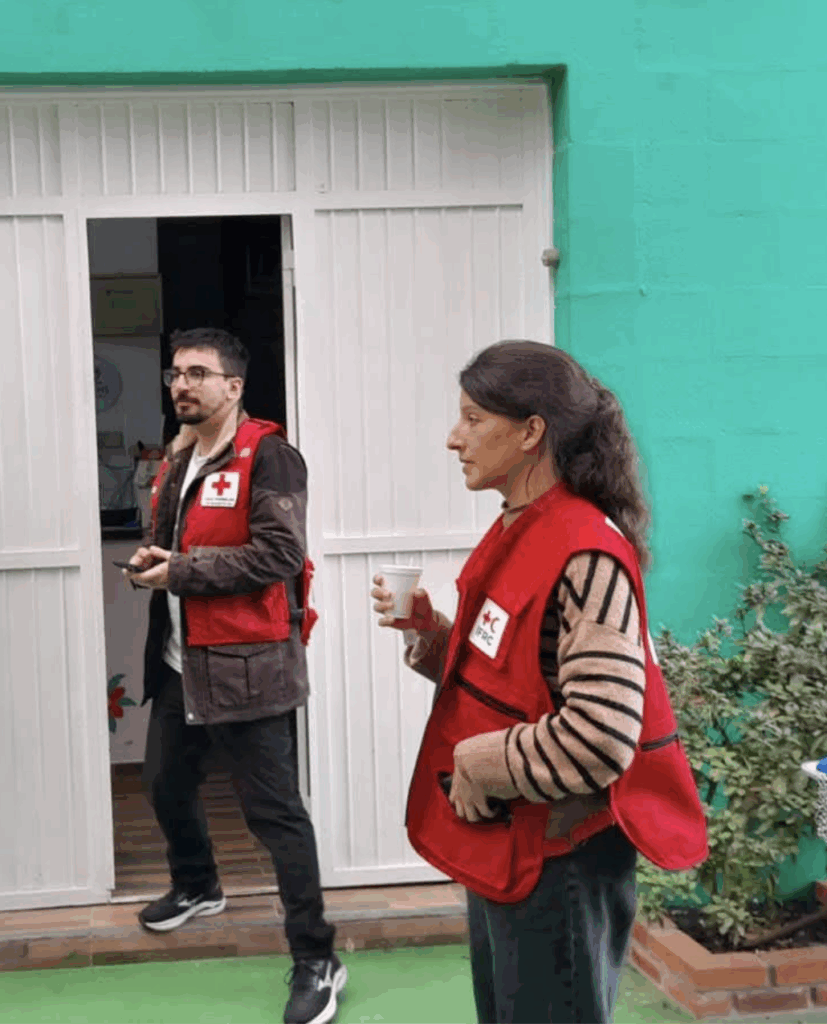
Can you share a particularly memorable or rewarding experience from your time in the CPDP program?
The most rewarding experiences are always the people we meet and the stories they share. In Brazil, I met two great organisations, one fighting for the rights of people affected by dams, with direct support and outreach to the population as well as with high levels of government, and another providing training in construction for women. The people working in these organisations have an incredibly inspirational drive, in spite of all the hardships they have been through, as they were all also personally affected.
What advice would you offer to someone just beginning the CPDP program?
Stay flexible and proactive, you might end up learning way more than you signed up for.
How do you feel your career has progressed since completing the program?
I feel more confident to engage in strategic discussions within CVA, as I have built a larger understanding of what a cash transfers programme consists of. I have also met lots of cash professionals within the movement, and I believe this will open many doors, both for myself personally, but also to further the partnerships between CashCap/NORCAP and the RCRC movement.
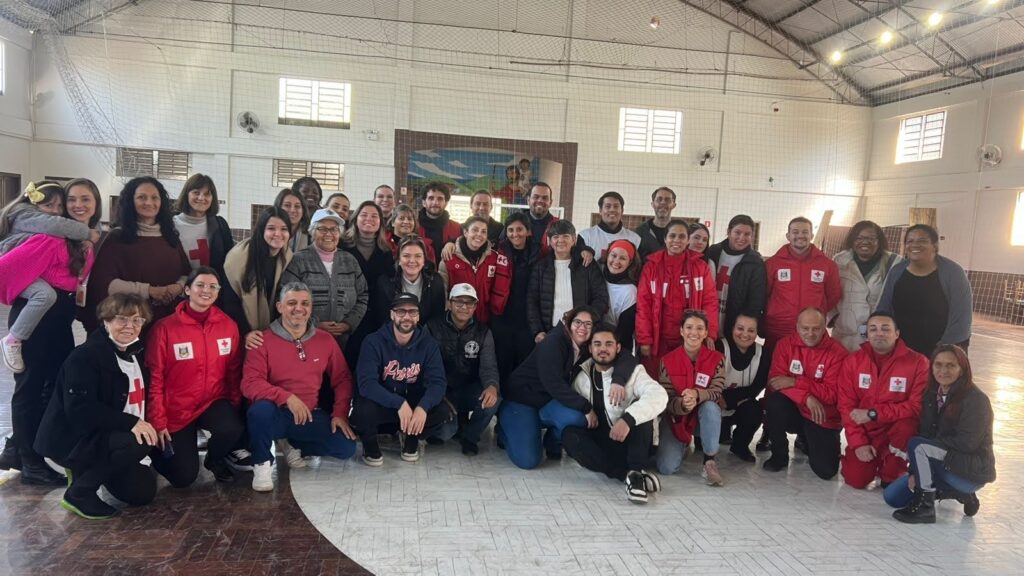
What trends or developments do you anticipate in the future of cash?
I see a great opportunity for cash in the context of the humanitarian reset and all the changes taking place. The work being done with CVA so far has been able to build solid foundations, with strong evidence of the benefits of cash, whose efficiency is especially important in this context. It can continue empowering people in a moment where aid might not be always readily available, building their resilience against future shocks.
Is there anything else you’d like to share about your CPDP journey?
I feel very privileged for having being part of this journey, and I hope this programme can continue expanding, and maybe inspire similar ones in different areas. It’s something I’ve already recommended to colleagues I met along the way, and I would love to remain engaged with the community I’ve built.
The continuation of this blog series will focus on the highlights from the recent Alumni of the 2024 Cash Practitioner Development Programme, allowing practitioners to share what they have learnt and experienced during their Cash School learning deployments.
The Cash Practitioner Development Programme aims to expand the ready pool of cash experts available to deliver humanitarian cash assistance, and to strengthen the community of qualified practitioners with up-to-date skills in all areas of cash assistance. Cash deployments are a key element of participants learning schedules, these deployments aim to enhance skills and confidence in implementing cash based assistance. Some deployments are run in partnership with NORCAP, with practitioners accessing deployment opportunities from a range of humanitarian agencies.
Meet Burak Akar from Our 2024 Cash Practitioner Development Programme!
Burak Akar currently serves as Senior CVA Officer at the IFRC Türkiye Delegation and brings several years of professional experience in humanitarian programming, specializing in Cash and Voucher Assistance (CVA). With Cash School, he was, first, deployed to Laos PDR to support the Laos Red Cross in initiating FSP tendering process and second, to Lithuania, to co-facilitate the Lithuanian Red Cross’ CVA SOP workshop.
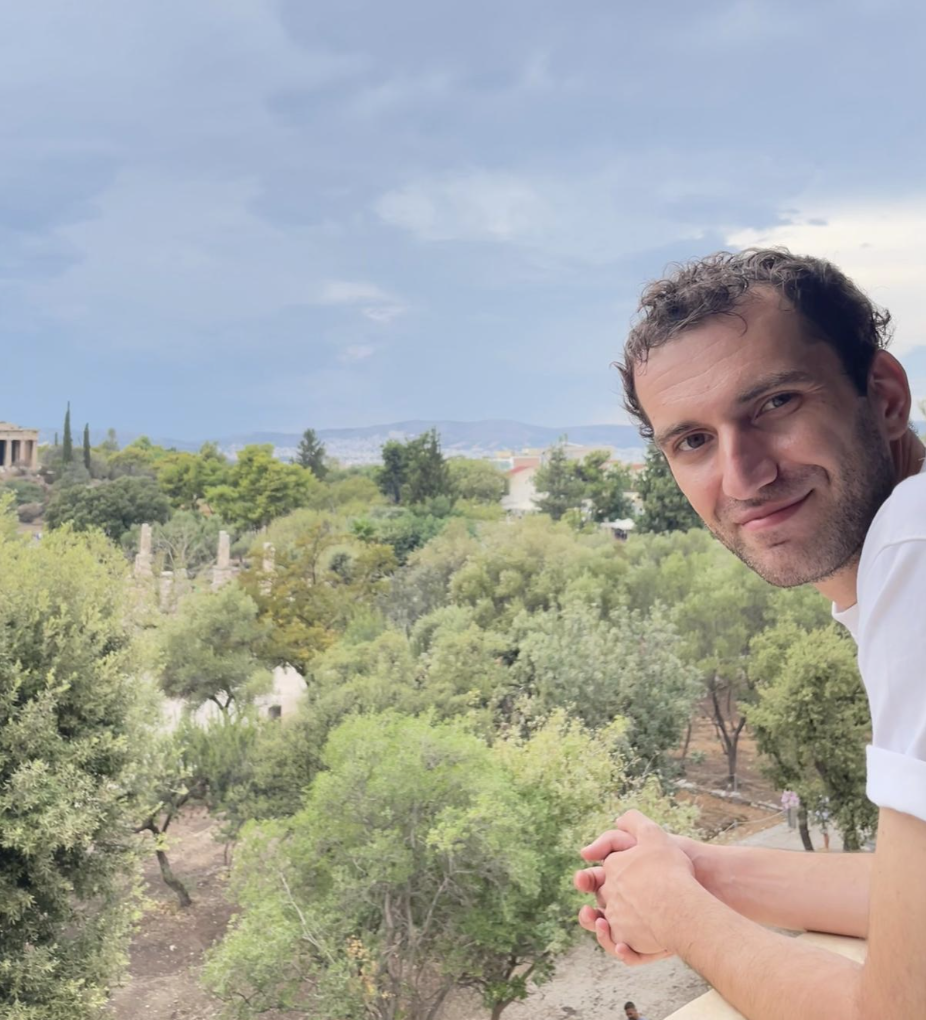
What was your experience with cash prior to undertaking the CPDP training program?
Before joining the CPDP program, I had been actively supporting the delivery of IFRC Türkiye and Turkish Red Crescent’s CVA projects, particularly in response to the refugee crisis and the Kahramanmaraş earthquakes. This gave me valuable hands-on exposure to implementing large-scale cash programmes in complex emergency settings.
What motivated you to pursue the CPDP program and expand your knowledge in cash operations?
What drew me most to the CPDP was its unique blend of theory and practice, brought together in one well-structured programme. I was especially excited about the deployment opportunities, both challenging and rewarding, which allow developing CVA practitioners to gain first-hand experience of international deployments and learn how cash is implemented in diverse contexts.
Where did you go during your deployment phase?
I was deployed to Lao PDR and Lithuania, both through IFRC offices. Each deployment included in-country and remote support phases, which gave me the chance to contribute in different ways while adapting to varying operational realities.
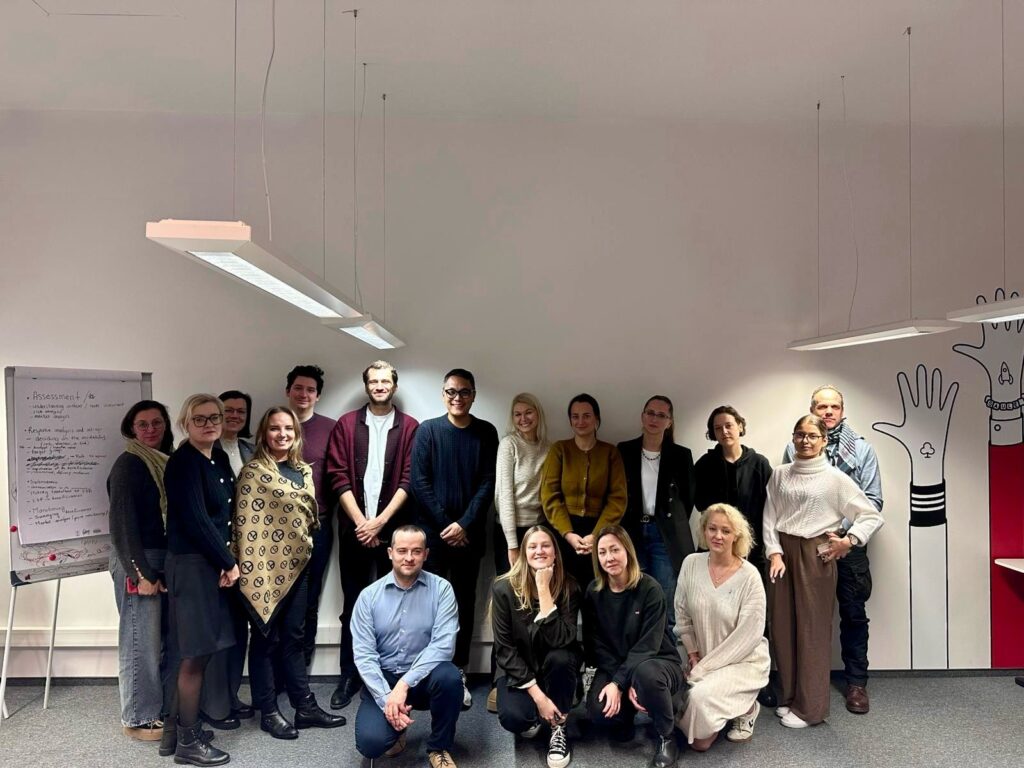
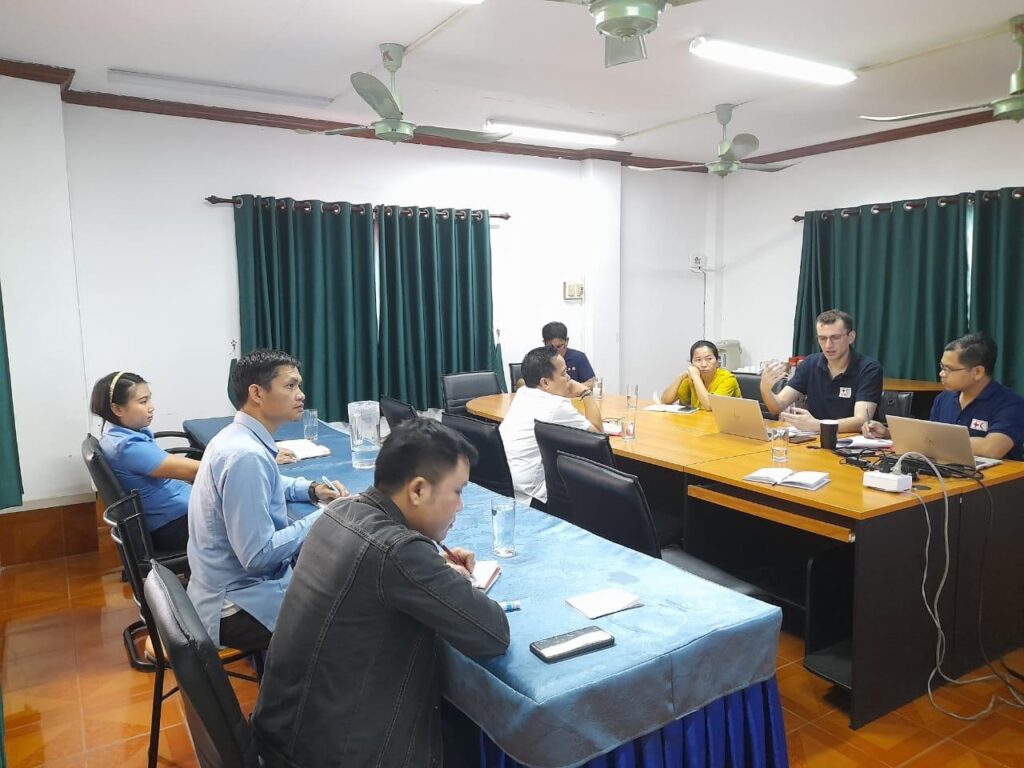
Can you share a particularly memorable or rewarding experience from your time in the CPDP program?
One of the most eye-opening experiences for me was exploring the different financial systems in both countries. Comparing the available FSP solutions, delivery mechanisms, and people’s relationships with the banking system across such different contexts deepened my understanding of how CVA must adapt to local realities.
Equally rewarding was building strong relationships with IFRC and National Society colleagues, having my deliverables approved by management, and seeing that my contributions directly supported CVA delivery and positively impacted vulnerable communities.
What advice would you offer to someone just beginning the CPDP program?
Enjoy the journey. Take full advantage of meetings with your mentor, as their guidance is invaluable (shout-out to Nicole!). And make the most of your deployment experiences as you will look back and miss the unique challenges and excitement of those moments.
How do you feel your career has progressed since completing the program?
The programme significantly strengthened my understanding of CVA implementation. It exposed me to areas I was less familiar with, pushing me out of my comfort zone and supporting both my professional and personal growth.
Just as importantly, the CPDP allowed me to connect with colleagues from across the globe. These exchanges broadened my perspective and helped me appreciate the diversity of contexts in which CVA operates.
What trends or developments do you anticipate in the future of cash?
I see further digitalization as a key trend. With the rapid development of technology and AI, the financial sector is transforming, and humanitarian CVA must evolve alongside it. Strengthening collaboration with the private sector will be essential. At the same time, we must remain mindful that solutions are not one-size-fits-all; what works in one context may not be suitable in another.
Is there anything else you’d like to share about your CPDP journey?
I would like to express my sincere gratitude to the British Red Cross, Cash Hub, and Cash School teams for this opportunity and for their invaluable support throughout the programme. Their professional and personal investment in advancing CVA has made a real difference, not only to me but to the wider community of practitioners.
The continuation of this blog series will focus on the highlights from the recent Alumni of the 2024 Cash Practitioner Development Programme, allowing practitioners to share what they have learnt and experienced during their Cash School learning deployments.
The Cash Practitioner Development Programme aims to expand the ready pool of cash experts available to deliver humanitarian cash assistance, and to strengthen the community of qualified practitioners with up-to-date skills in all areas of cash assistance. Cash deployments are a key element of participants learning schedules, these deployments aim to enhance skills and confidence in implementing cash based assistance. Some deployments are run in partnership with NORCAP, with practitioners accessing deployment opportunities from a range of humanitarian agencies.
Meet Abdoulaye Diarra from Our 2024 Cash Practitioner Development Programme!
Abdoulaye Diarra is a Malian humanitarian professional with growing expertise in cash and voucher assistance (CVA). Through the CPDP program, he transitioned from implementation-focused roles to strategic coordination, notably supporting CVA capacity building in Guinea. His journey reflects a commitment to innovation, collaboration, and advancing digital solutions in humanitarian aid.

What was your experience with cash prior to undertaking the CPDP training program?
Before the CPDP program, I had limited experience in the design and coordination of cash and voucher assistance projects. My approach focused mainly on implementation and monitoring and evaluation, but I did not yet have an in-depth understanding of cash and voucher assistance.
What motivated you to pursue the CPDP program and expand your knowledge in cash operations?
I wanted to join the CPDP to strengthen my technical skills, acquire international expertise, and better understand the management and coordination of cash and voucher assistance. This program represented a unique opportunity to develop my practical and strategic knowledge.
Where did you go during your deployment phase?
My deployment took place in Conakry, Republic of Guinea, where I was able to work directly on building the capacity of Guinean Red Cross staff in humanitarian cash transfers and implementing the cash-for-work approach.
Can you share a particularly memorable or rewarding experience from your time in the CPDP program?
One of the highlights was solving a complex problem while targeting cash-for-work beneficiaries during my deployment in Guinea, contributing to a humanitarian mission, and collaborating with an international team.
What advice would you offer to someone just beginning the CPDP program?
I would tell them to be open to learning and ready to step out of their comfort zone. The program is demanding but very rewarding: each mission is an opportunity to develop valuable skills.
How do you feel your career has progressed since completing the program?
Since completing the CPDP, my career has evolved significantly: I have acquired solid expertise in CVA, increased responsibilities, and a more strategic vision of CVA. The program has clearly opened up new professional opportunities for me.
What trends or developments do you anticipate in the future of cash?
I believe the future of cash and voucher assistance will be marked by increasing digitalisation, mobile payments, social protection, and financial inclusion.
Is there anything else you’d like to share about your CPDP journey?
I remember the CPDP as an unforgettable personal and professional experience. Beyond the skills, it is the connections created and the trust gained that remain the most valuable.
The continuation of this blog series will focus on the highlights from the recent Alumni of the 2024 Cash Practitioner Development Programme, allowing practitioners to share what they have learnt and experienced during their Cash School learning deployments.
The Cash Practitioner Development Programme aims to expand the ready pool of cash experts available to deliver humanitarian cash assistance, and to strengthen the community of qualified practitioners with up-to-date skills in all areas of cash assistance. Cash deployments are a key element of participants learning schedules, these deployments aim to enhance skills and confidence in implementing cash based assistance. Some deployments are run in partnership with NORCAP, with practitioners accessing deployment opportunities from a range of humanitarian agencies.
Meet Reem Jawhari from Our 2024 Cash Practitioner Development Programme!
My name is Reem Jawhari, a humanitarian professional specialising in Cash and Voucher Assistance (CVA) programming, with experience across the MENA region and in international deployments. I currently serve as the MENA Cash Centre of Excellence Technical Focal with the IFRC hosted by the Lebanese Red Cross, supporting National Societies in enhancing their CVA preparedness and response capacities through assessments, peer-to-peer exchanges, mentoring programs, webinars, and more.
Previously, I worked as an Economic Security Officer with the Lebanese Red Cross, coordinating large-scale multipurpose cash interventions in response to the Beirut Blast. As a long-standing LRC volunteer, I have seen first-hand how CVA has become a key response mechanism in the region, offering an efficient and transparent way to assist vulnerable communities while preserving dignity and independence.
I hold a bachelor’s degree in public health and development sciences, a Humanitarian Leadership Diploma, and the British Red Cross Cash Practitioner Development Program certification, along with several specialised CVA trainings.
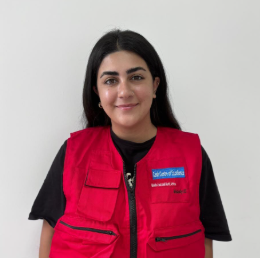
What was your experience with cash prior to undertaking the CPDP training program?
Before the CPDP, I had already been engaged with cash and voucher assistance at different levels in my National Society, from supporting distributions in the field to working on monitoring, FSP coordination, and preparedness planning.
However, during the CPDP my knowledge was largely shaped by practice, with exposure to global standards and structured learning on cash operations as well as learning from Cash practitioners who have a lot of knowledge and experience in the filed globally.
What motivated you to pursue the CPDP program and expand your knowledge in cash operations?
I wanted to strengthen my technical expertise and gain a more systematic understanding of CVA. For me, CPDP was an opportunity to learn from experts, exchange experiences with peers from across the Movement, and translate that knowledge into stronger, more impactful programming in my own context.
Where did you go during your deployment phase?
During my deployment, I had the chance to work closely Tonga Red Cross Society.
The journey of Getting introduced to the Tonga Red Cross Society, which is on the other side of the word was very interesting since it’s a completely different context that I never imagined myself working in.
I supported the National society in Cash preparedness through the self-assessment, Job description development, SOPs.
This was a valuable hands-on experience that brought the theory of Cash Preparedness into real operational practice.
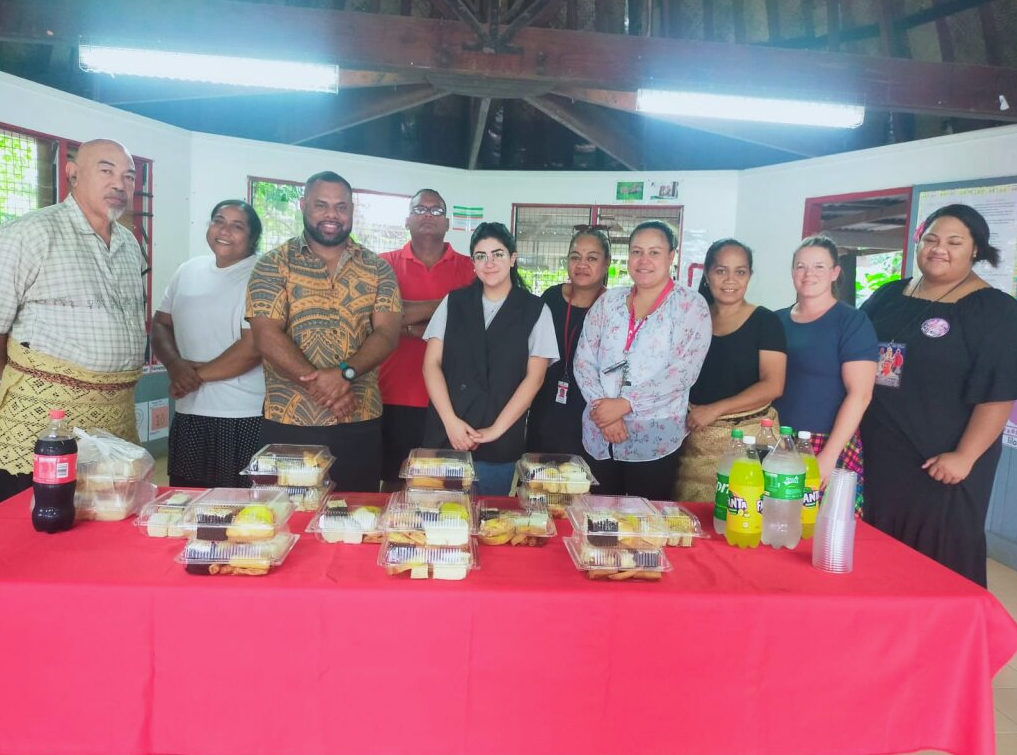
Can you share a particularly memorable or rewarding experience from your time in the CPDP program?
One of the most rewarding moments was engaging directly with communities during my deployment and seeing how cash support translated into dignity, choice, and empowerment. It reminded me that beyond the systems and processes, CVA is about people — mothers, fathers, and children making decisions that matter most for their lives.
What advice would you offer to someone just beginning the CPDP program?
Be open and curious.
Take every chance to ask questions, learn from colleagues and your Mentors, and connect with your peers.
Also, don’t forget that the deployment is where everything comes together.
Approach it as both a challenge and an opportunity that will give you lifetime experience both on a personal and on a CVA skill-based Level.
How do you feel your career has progressed since completing the program?
Completing CPDP gave me both confidence and credibility.
It expanded my technical skills in CVA and strengthened my leadership and coordination capacity.
Since then, I’ve taken on greater responsibilities in program management and CVA preparedness, and I feel better equipped to advocate for cash.
What trends or developments do you anticipate in the future of cash?
I see cash becoming even more integrated across sectors — not as a stand-alone intervention but as a tool to achieve outcomes in health, WASH, shelter, and beyond. Digital payments will also play a larger role, requiring us to balance efficiency with inclusion and data protection.
Finally, preparedness and localization will be critical — ensuring that National Societies have the systems and partnerships in place to deliver cash at scale when crisis hit.
The continuation of this blog series will focus on the highlights from the recent Alumni of the 2024 Cash Practitioner Development Programme, allowing practitioners to share what they have learnt and experienced during their Cash School learning deployments.
The Cash Practitioner Development Programme aims to expand the ready pool of cash experts available to deliver humanitarian cash assistance, and to strengthen the community of qualified practitioners with up-to-date skills in all areas of cash assistance. Cash deployments are a key element of participants learning schedules, these deployments aim to enhance skills and confidence in implementing cash based assistance. Some deployments are run in partnership with NORCAP, with practitioners accessing deployment opportunities from a range of humanitarian agencies.
Meet Dante Moses from Our 2024 Cash Practitioner Development Programme!
Dante Moses is a Cash & Voucher Assistance (CVA) Specialist working within the Americas region and serving as the CVA Focal Point for the Dominica Red Cross Society. He has completed seven deployments within the Movement, most recently supporting within CVA Finance in the Ukraine and impacted countries response. Dante provides ongoing support to Caribbean National Societies with their CVA responses and has a strong interest in anticipatory action and advancing cash readiness.
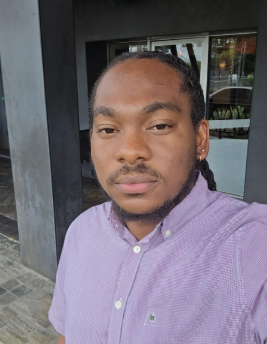
What was your experience with cash prior to undertaking the CPDP training program?
My initiation into cash was very much a trial by fire. Less than a year after joining the Dominica Red Cross Society as a youth volunteer, Tropical Storm Erika (2015) struck, leading to a response that for the first time included cash. Although my role was small then, it marked both my first exposure to CVA and the society’s first attempt at it. Two years later, at just 19 years old, Category 5 Hurricane Maria devastated my island, completely shutting down systems, severely damaging the National Society, and leaving many volunteers, myself included , without homes. It was during this response that I executed the role of CVA Focal Point, working alongside rotations of experienced CVA experts who later became mentors. Despite the challenges, my exposure and interest in cash grew significantly, along with my eagerness to learn.
What motivated you to pursue the CPDP program and expand your knowledge in cash operations?
Having responded at home, across the wider Caribbean, and even outside my region in contexts such as floods, hurricanes, volcanic eruptions, and conflict, my motivation to deepen my knowledge only increased. While deployed as CVA Finance in the Ukraine and impacted countries response, I felt an even stronger desire to strengthen my technical expertise and bring that knowledge back to my region. Applying to the CPDP program was a way to further diversify my CVA skills and ensure I could contribute more effectively to both response and preparedness.
Where did you go during your deployment phase?
During my deployment phase, I supported National Societies in Bulgaria and Montenegro on their cash preparedness activities by co-facilitating CVA SOP workshops and a CVA self-assessment workshop. I then deployed to Anguilla, where I co-facilitated a Shock Responsive Social Protection Pilot alongside colleagues from NorCap, UNICEF, and CDEMA with the Anguilla National Office of Disaster Management.
Can you share a particularly memorable or rewarding experience from your time in the CPDP program?
After spending time in the Europe Regional Office supporting National Societies with their response activities, one of the most rewarding moments was knowing that even at the end of my mission I could contribute something lasting. Through the Cash School, I was able to return and leave behind tools and knowledge that National Societies could continue to use, which made the experience especially meaningful.
What advice would you offer to someone just beginning the CPDP program?
My advice would be to think beyond the day-to-day tasks and really use the program as a chance to explore how CVA can be applied in different contexts. The CPDP isn’t only about strengthening your technical skills , it’s also about broadening your perspective on how cash can complement other approaches, from preparedness to anticipatory action and social protection. Go into it with an open mind, ready to connect the knowledge you already have with new ways of applying CVA that you may not have considered before.
How do you feel your career has progressed since completing the program?
Since completing the Cash Practitioner Development Programme, I have been able to support my National Society in advancing its cash readiness activities, including drafting CVA SOPs. I have also provided remote support to CVA trainings for other Caribbean National Societies, which has allowed me to share knowledge more widely across the region. These opportunities have helped me grow from primarily implementing CVA to contributing to preparedness and capacity-strengthening, marking a significant step forward in my career.
What trends or developments do you anticipate in the future of cash?
I anticipate that cash will continue to evolve as a central tool in humanitarian response, moving beyond emergency distributions into areas such as anticipatory action, shock-responsive social protection, and climate resilience. Digital delivery mechanisms and stronger linkages with government systems will play a bigger role, especially in regions like the Caribbean where small island states face recurring climate shocks. I also see a growing emphasis on preparedness and cash readiness, ensuring that National Societies and partners can deliver faster, more efficient, and more accountable assistance when crises occur.
Is there anything else you’d like to share about your CPDP journey?
The CPDP was not only a professional milestone but also a personal one. It provided me with a network of peers and mentors across regions, which has been invaluable in continuing to learn and collaborate. Most importantly, the program gave me the confidence and tools to translate my experiences, from being a 19-year-old CVA Focal Point during Hurricane Maria to supporting regional and international operations today, into practical skills that strengthen both my National Society and others in the Caribbean. It has been a journey of growth, resilience, and commitment to ensuring that cash remains a strong, people-centered tool in humanitarian response.
The continuation of this blog series will focus on the highlights from the recent Alumni of the 2024 Cash Practitioner Development Programme, allowing practitioners to share what they have learnt and experienced during their Cash School learning deployments.
The Cash Practitioner Development Programme aims to expand the ready pool of cash experts available to deliver humanitarian cash assistance, and to strengthen the community of qualified practitioners with up-to-date skills in all areas of cash assistance. Cash deployments are a key element of participants learning schedules, these deployments aim to enhance skills and confidence in implementing cash based assistance. Some deployments are run in partnership with NORCAP, with practitioners accessing deployment opportunities from a range of humanitarian agencies.
Meet Prisca Waluza Chisala from Our 2024 Cash Practitioner Development Programme!
Prisca is currently working with the IFRC as a regional coordinator, Early Warnings Early Actions for Africa from her previous role as Director of Programmes and Development at the Malawi Red Cross Society, which was her entry point into the CPDP.
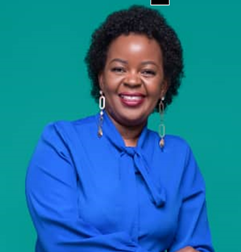
What was your experience with cash prior to undertaking the CPDP training program?
I joined the CPDP program when I was serving as the Director of Programmes and Development at the Malawi Red Cross Society (MRCS). In this role, I provided strategic and programmatic leadership across all MRCS interventions, including those utilising cash as a modality to support vulnerable populations. I was directly responsible for overseeing the design, implementation, and monitoring of cash-based interventions, ensuring they aligned with MRCS’s strategic objectives and humanitarian standards. My role also involved engaging with partners and donors to advocate for and scale up the use of cash in both emergency and resilience-building contexts.
What motivated you to pursue the CPDP program and expand your knowledge in cash operations?
I observed a growing interest from donors, partners and affected communities in using cash as a preferred modality for humanitarian assistance. This trend highlighted the need for enhanced technical and operational capacity within MRCS to institutionalise and scale up cash programming. I was motivated to join the CPDP to deepen my expertise, strengthen my ability to provide technical support to MRCS teams, and position myself for regional or global deployments where cash programming expertise is in high demand. I also saw it as an opportunity to contribute more meaningfully to the localisation agenda by building internal capacity within National Societies.
Where did you go during your deployment phase?
I was deployed to Iraq, where I had the opportunity to contribute to ongoing cash programming efforts (including supporting the transitioning of the cash working group into a cash forum) and gain hands-on experience in a complex humanitarian context.
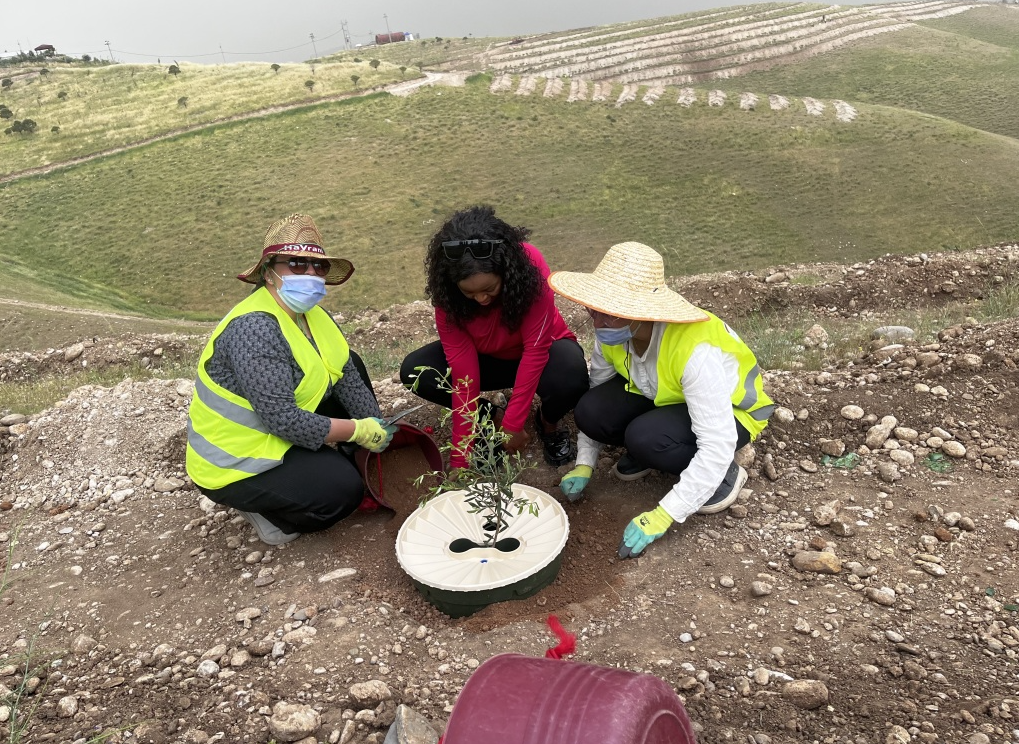
Can you share a particularly memorable or rewarding experience from your time in the CPDP program?
One of the most memorable and rewarding experiences was my deployment in Iraq, where I had the privilege of co-chairing the national Cash Forum (formerly referred to as the Cash Working Group). This was my first time leading such a coordination platform, and it was both a challenging and enriching experience. During one of the monthly coordination sessions, I was invited to present key lessons and recommendations from my deployment, which sparked significant interest among members. Several participants requested a copy of my report, which was a humbling affirmation of the value of my contributions. This experience greatly enhanced my confidence in technical leadership and coordination in cash programming.
What advice would you offer to someone just beginning the CPDP program?
The CPDP is a transformative and enriching journey that equips participants with both theoretical and practical skills in cash programming. My advice would be to approach it with commitment and curiosity. Effective time management, proactive planning, and maintaining regular communication with your mentor are essential to balancing the program with your existing responsibilities. Be open to learning from peers, mentors, and field experiences, and take every opportunity to apply your learning in real-world contexts.
How do you feel your career has progressed since completing the program?
The CPDP program significantly enhanced my technical and operational capacity in cash programming. I now feel more confident in designing, coordinating, and evaluating cash-based interventions. It has also positioned me as a resource person within the Movement, capable of mentoring and coaching colleagues in National Societies. The program broadened my professional network and opened up new opportunities for regional and global deployments, further enriching my career trajectory.
What trends or developments do you anticipate in the future of cash?
I foresee a continued expansion in the use of cash across both humanitarian and development programming. Cash offers numerous benefits, including preserving the dignity of recipients, offering them choice, and stimulating local markets. With advancements in digital technology and financial inclusion, I anticipate more integrated and scalable cash systems that are responsive to both rapid-onset emergencies and long-term resilience needs. There will also likely be increased emphasis on linking cash with social protection systems and anticipatory action frameworks.
Is there anything else you’d like to share about your CPDP journey?
The CPDP journey was not only a professional development opportunity but also a powerful platform for networking and peer learning. I gained invaluable insights from fellow participants, mentors, and alumni, which enriched my understanding of diverse cash programming contexts. The collaborative spirit and shared commitment to improving humanitarian outcomes through cash made the experience deeply fulfilling.
The continuation of this blog series will focus on the highlights from the recent Alumni of the 2024 Cash Practitioner Development Programme, allowing practitioners to share what they have learnt and experienced during their Cash School learning deployments.
The Cash Practitioner Development Programme aims to expand the ready pool of cash experts available to deliver humanitarian cash assistance, and to strengthen the community of qualified practitioners with up-to-date skills in all areas of cash assistance. Cash deployments are a key element of participants learning schedules, these deployments aim to enhance skills and confidence in implementing cash based assistance. Some deployments are run in partnership with NORCAP, with practitioners accessing deployment opportunities from a range of humanitarian agencies.
Meet Daniela Funez from Our 2024 Cash Practitioner Development Programme!
Daniela Funez serves as the Regional Cash and Voucher Assistance (CVA) Coordinator for IFRC in the Americas. She supports National Societies in strengthening their CVA capacity through surge deployments, training, and preparedness initiatives. As part of her Cash School learning, she deployed to Poland to support the facilitation team for a RAM training and provided remote assistance to National Societies on engaging with Global Financial Service Providers for CVA programming and CVA Preparedness.
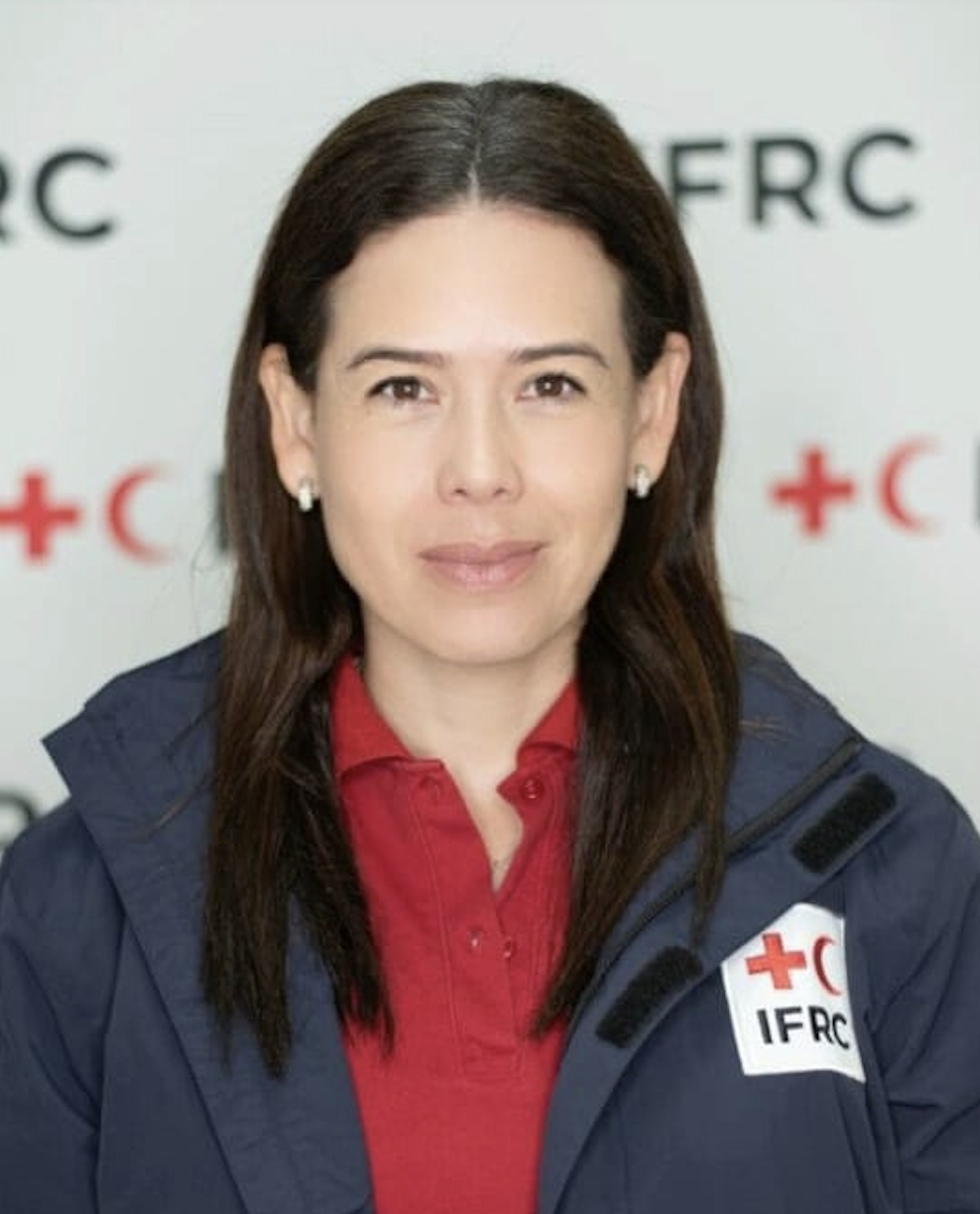
Red Cross Red Crescent national societies in the Asia-Pacific Region are facing unique challenges in cash preparedness. Geographical factors, such as the vast distances between Islands and countries, as well as operational challenges, like limited personnel and funding constraints, are causing significant complexity to response efforts. Meanwhile, disasters continue to grow in intensity and regularity.
Cash Preparedness or Cash and Voucher Assistance Preparedness (CVAP), refers to ongoing investments and planning by humanitarian stakeholders (especially the Red Cross and Red Crescent National Societies) to develop a region’s capacity to deliver scalable, timely, accountable, and high-quality CVA when crisis strikes without needing external support.
Many national societies are now eager to scale up their capacity by investing in Cash and Voucher Assistance (CVA), specifically in preparedness, as a means of scaling up support to local communities; and for good reason, this forward-thinking approach positions CVA as a fundamental tool that cross-cuts traditional sectors and supports long-term development projects. It goes beyond the traditional thinking of emergency response as addressing immediate basic needs, focusing instead on community resilience and enhanced response effectiveness in future operations.
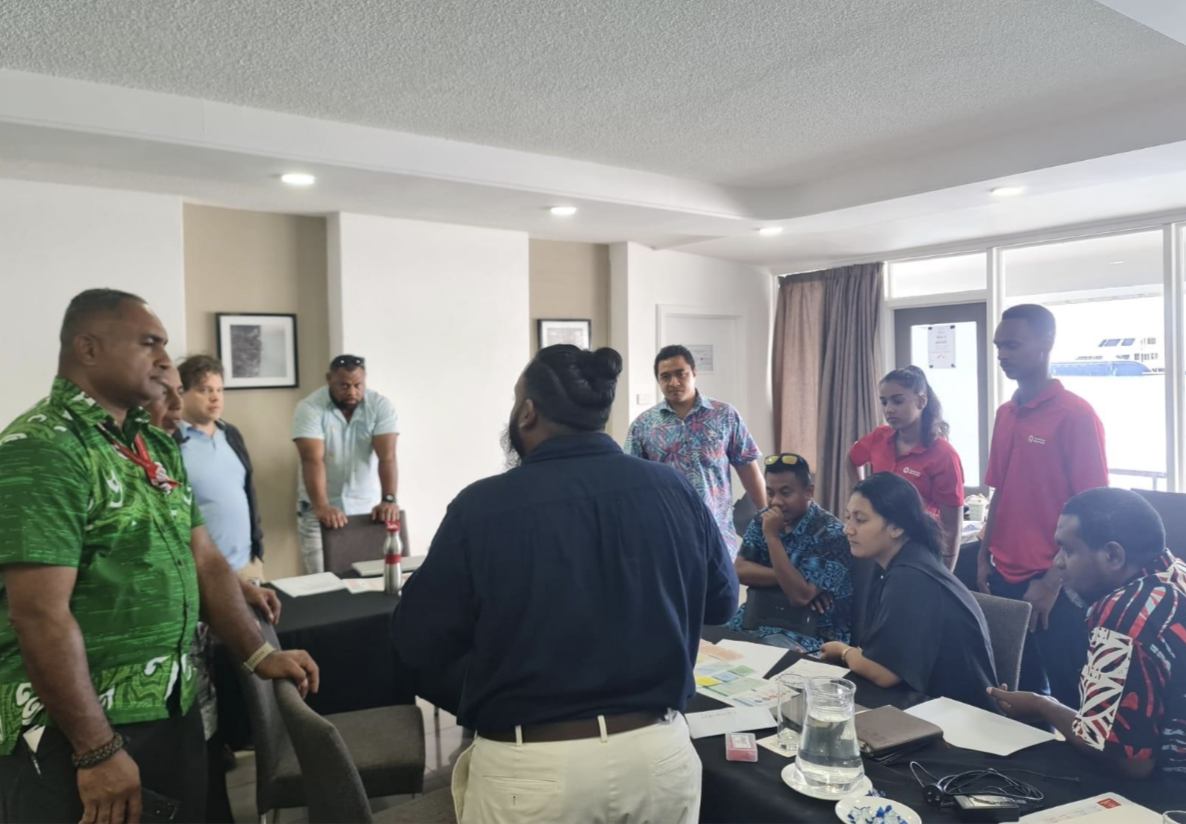
In October 2024, ten Pacific national societies – Fiji, Cook Island, Micronesia, Marshall Island, Kiribati, Tonga, Solomon Island, Samoa and Tuvalu – developed the Pacific CVA Preparedness Plan of Action. This came after the American Red Cross pledged to strengthen CVA preparedness across Asia and the Pacific, coming together with the IFRC CCD Pacific, IFRC APRO, IFRC Geneva to support the Pacific national societies in their ambitious new plan. In the lead up to the plan’s development, representatives from each national society assessed their strengths, assets, and operational gaps for successful preparedness programming. They highlighted key financial service providers that could be engaged through a regional framework agreement, and key thematic workstreams to guide their focus.
National Societies’ representative used CVA experiences shared by Vanuatu, Tonga, Micronesia, and Fiji, detailing their own progress and prior experience. Each society set capacity dependent targets and outlined their desired level of operational readiness, aiming to achieve these goals within the next three years. They hope the plan of action will contribute to the shared objective of fortifying the Pacific region. This collaborative effort enables Pacific societies to enhance their readiness and resilience through coordinated, effective responses across the region.
In particular the Tonga Red Cross took many learnings from the January 15, 2022, tsunami disaster triggered by the Hunga Tonga-Hunga Ha’apai volcanic eruption. Sini Latu, from the Tonga Red Cross Society, stated that the Tonga Red Cross Society has implemented five Community-Based Vulnerability Assessment activities. The activities focused on;
- Shelter
- Cash-for-work
- Protection
- Gender and Inclusion (PGI)
- Multi-purpose cash grants
“We initiated the CVA with minimal knowledge within our National Society. We likely made numerous mistakes and underwent a trial-and-error process as the knowledge introduced to us comes from diverse contexts and was not directly applicable. However, we discovered that the community was appreciative of this approach, prompting us to continue with the CVA.”
Follow up for this workshop will be maintained through a sub region working group, led by Tonga, Fiji, Vanuatu, and Micronesia red cross societies. This group, with support from IFRC and Participating National Societies (PNSs), will gather and share information about new opportunities, information, and best practices among Pacific national Societies.
This is the commitment of the Hanoi Call for action: Mutual aid between National Societies.
In partnership with:
This blog series will focus on the highlights from different Cash Practitioner Development Programme graduates, allowing practitioners to share what they have learnt and experienced during their Cash School learning deployments.
The Cash Practitioner Development Programme aims to expand the ready pool of cash experts available to deliver humanitarian cash assistance, and to strengthen the community of qualified practitioners with up-to-date skills in all areas of cash assistance. Cash deployments are a key element of participants learning schedules, these deployments aim to enhance skills and confidence in implementing cash based assistance. Some deployments are run in partnership with NORCAP, with practitioners accessing deployment opportunities from a range of humanitarian agencies.
Meet Ramesh Ghimire from Our 2021 Cash Practitioner Development Programme!
Ramesh Ghimire, former Cash and Voucher Assistance (CVA) Coordinator at the Nepal Red Cross Society and current CVA Delegate for the IFRC in Moldova, reflects on his cash journey so far and provides advice to others who are considering applying to join the Cash Practitioner Development Programme (CPDP).

Tell me about your Cash and Voucher Assistance (CVA) journey
My NS, the Nepal Red Cross, used cash as a modality to respond to the mid-west flood of 2014 and the Gorkha earthquake of 2015. I assisted in coordinating and carry out these plans with technical help from global surges. We weren’t trained and were only given some basic information because of time constraints. Instead, we were put to work in whatever area we were in and told what to do by people who said they were experts. Then, in 2017, My NS decided to initiate cash preparedness and looked for a CVA focal to organize them. I took the job happily and finished the PECT training in 2017. Then, we assessed NS’s self-capacity and developed a two-year action plan. I primarily focused on sensitizing Red Cross staff and volunteers from headquarters and chapters about the modalities, mechanism, and process of the cash delivery. Developing a cash SOP was one of the most significant tasks that the team did well. We were able to obtain funds for another capacity review of NS in 2021. The PoA was made over a three-year time, and the partners promised funding for it. During this time, I worked on getting the HQ and chapters ready and used CVA as a modality to help people in different emergency situations.
When did you first hear about the CPDP programme and why did you choose to apply?
I had heard about the CPDP programme previously and received an email from the CVA colleagues to join the next cohort. I interviewed for it and I was selected. I initially applied to the programme as I was interested in cash and markets.. I realised that this programme would enhance my existing CVA skills and knowledge.
Tell me about your best moment on the CPDP programme
- I truly appreciated having the chance to be deployed. It really enhanced my CV, knowledge and skills. I did two deployments. The first was in 2021 in Turkey and the second in Ethiopia in 2022. They were very different experiences and I would recommend the opportunity to anyone!
- My Mentor was very helpful and able to see where I needed to learn more. We talked about our goals and what we had learned, and then we decided together what would be a good way to work.
- There was a run of webinars on different topics that focused on what practitioners were interested in and helped them learn from the different situations.
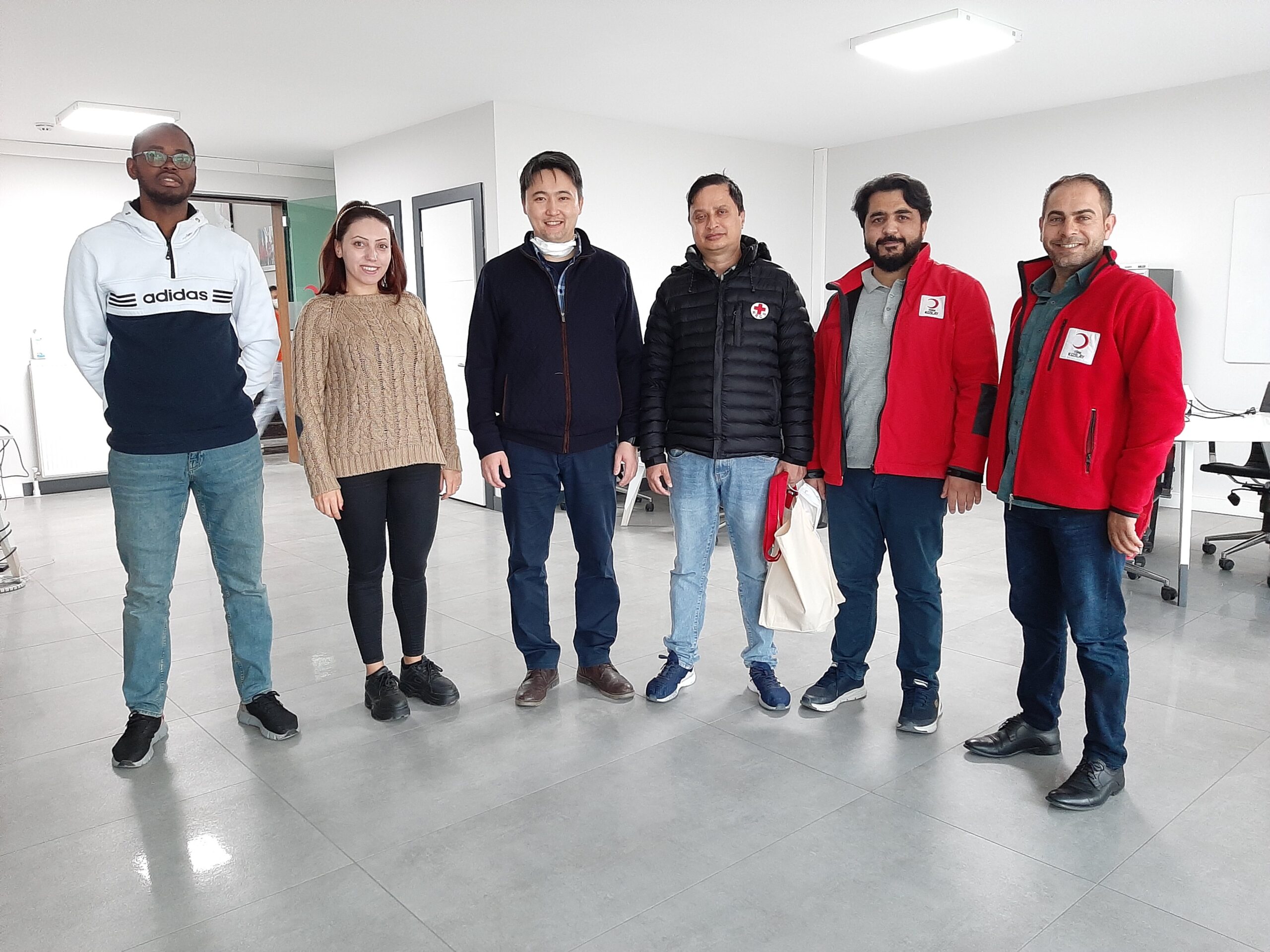
I am aware that your deployment to Ethiopia was slightly different. Can you tell me what you did?
My deployment in Ethiopia was with CashCap and I was hosted by the International Organisation for Migration (IOM). In Ethiopia, I focused mainly on the Minimum Expenditure Basket (MEB) development for the Cash Working Group. The term MEB refers to the items and costs required to meet the basic needs of a household. Only during my brief visit in Ethiopia was it able to draft the MEB ToR, and I completed some preliminary work by gathering the household survey report, MEB of regions, FSP, and market mapping data from various organizations. On the other hand, I was involved with sub-national cash working group to disseminate CWG priorities, plans and MEB sensitization.. These were great learning points from my CPDP deployment.
Would you recommend the CPDP?
Yes, it is good for people working with National Societies (NS) to engage with this CVA programme. It is good to experience different contexts when working with cash. There is mentoring and a deployment component which is good for growing your existing experience of CVA and beneficial to your NS too. The CPDP is a very good platform for accessing new ideas, learning about CVA and sharing best practices. If you have the opportunity to join the programme then do it as it is a good way to learn about CVA in a practical way.
Tell me about life after the CPDP.
I am having a great time working as a CVA Delegate with the IFRC in Moldova. I work with the IFRC and at the same time provide remote support to my NS in some extent. It is interesting because in the past when I was in Nepal I was implementing CVA through receiving support from the partners and movement. Now, I am the one helping NS on their CVA preparedness initiatives
What difference has the CPDP made to you?
Undertaking the Cash Practitioner Development Programme has allowed me to contribute positively to integrate CVA in all sectors through establishment of technical working group from all departments and sectors. We also produce a newsletter regularly about CVA data which has been successful. We realised that we needed a strategy to be able to meet the 2025 IFRC strategy and so this is also something that my NS are focusing on. Lastly, I translated cash documents from English into Nepali as many of our people, including the volunteers, cannot learn about CVA due to the existing language barriers. The CVA is now widely recognized, discussed, and ready to be implemented in Red Cross chapters to carry out preparedness and response actions.
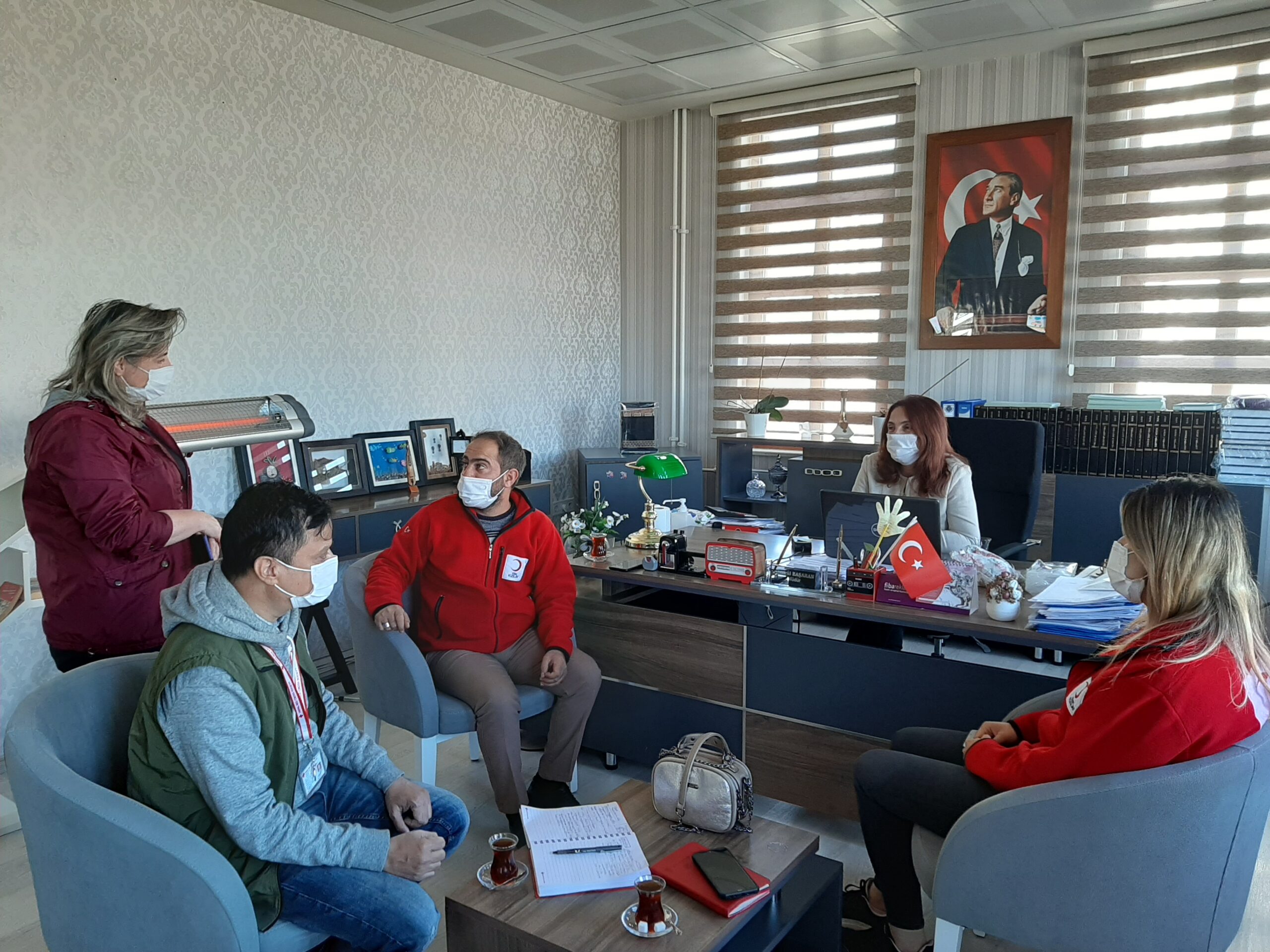
Do you have any final words on cash?
Cash assistance given to people or families helps the whole community and local economy in the long run. The National Society needs to be ready to continue the CVA journey in the future. Because of this, NS needs to be ready with things like operational processes, a map of service providers, and trained staff and volunteers.
This blog series will focus on the highlights from different Cash Practitioner Development Programme graduates, allowing practitioners to share what they have learnt and experienced during their Cash School learning deployments.
The Cash Practitioner Development Programme aims to expand the ready pool of cash experts available to deliver humanitarian cash assistance, and to strengthen the community of qualified practitioners with up-to-date skills in all areas of cash assistance. Cash deployments are a key element of participants learning schedules, these deployments aim to enhance skills and confidence in implementing cash based assistance. Some deployments are run in partnership with NORCAP, with practitioners accessing deployment opportunities from a range of humanitarian agencies.
Meet Florence from Our 2021 Cash Practitioner Development Programme!
Florence Umulisa, a former employee at the Rwanda Red Cross and now Response and Preparedness Project Management Delegate at the Netherlands Red Cross/South Sudan), reflects on her journey with CVA, offers advice to others considering applying to join the Cash Practitioner Development Programme (CPDP) and touches upon the need to incorporate cross-cutting themes when working with cash.

Tell me about your relationship with cash before undertaking the CPDP training
It was confusing when my National Society (NS) first began to use cash in 2019. However, the government social protection program’’Ubudehe’’ that provides ‘’Cash for Work’’ and the IFRC who did a hard sell on the merits of cash, gave us the final push to say let’s give it a go!
Through the initial training I received, I started to feel that cash Transfer was the best option for disaster response.
We started training staff and Board members and pre-positioning some tools for us to be cash ready via a Cash Preparedness project which was for supporting cash relatively quickly, and doing some disaster responses using Cash Transfers.
Why did you decide to start learning more about cash and the CPDP program?
From 2019-2021, I was the Cash Focal Point for the Rwanda Red Cross. It was during this time that a link to the CPDP training was shared with me asking for people with experience in supporting their NS with cash and voucher assistance (CVA) to join a cash learning program. It sold itself as being a program that supports cash practitioners to improve their skills and knowledge in the implementation of cash in CVA operations. As the Cash Focal Point, I felt that I need to undertake this program to ensure that our NS would be cash ready. I was interested in finding ways of responding effectively and efficiently to the needs of the recipients using CVA.
As we were still at the beginning of our cash journeys, I was interested to learn how cash can be coordinated at a large scale and how we can disseminate CVA in other programs outside of Disaster Response. I also wanted to extend the network and coordinate with other like-minded people for peer-to-peer learning in humanitarian domains.
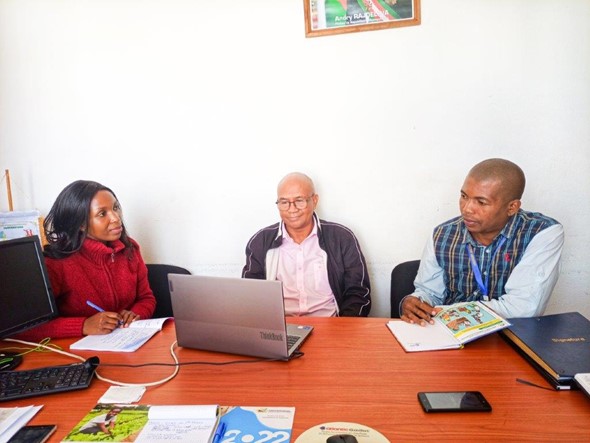
Where did you go on deployment?
I went to Jordan and Madagascar. In Jordan, I was supporting Syrian refugee operations via the Cash Working Group (CWG) by updating the CVA risk matrix and doing the CVA PDM data analysis, which provided some recommendations for future operations. In Madagascar, I was also working with Cash Working Group in developing the Cash and Voucher Assistance Standard Operating Procedures for cyclone and Flood Response.
These were my first deployments and my first contact with different humanitarian CVA actors; it was interesting, to meet with CVA experts for Syria humanitarian actors who were doing more CVA response. With deployments, I learnt about CVA coordination to large scale emergencies, and how to link humanitarian CVA to government social protection.
In addition, it extended my network by joining other CVA platforms and groups such as MIC (Market in Crisis Community) and CashCap (Cash Capacity).
Tell me about your best moment on the CPDP program
- My first interaction with my CPDP peers at the start of the program was memorable. I enjoyed getting to know them and sharing our experiences. We are still in touch!
- The opportunity to be exposed to the new environment through deployment! With this, I got to learn practice how CVA can be used in a different context, how CVA is coordinated in complex emergencies with different humanitarian actors, as well as how to do a CVA risk matrix and risk analysis.
What advice do you have for someone new to the program?
- First, it is better to be clear with the objective of why you want to join CPDP.
- Second, CVA is evolving and getting large with some innovations in different components, so do not get tired! Take time to rest and enjoy learning.
- Third, be in touch with your mentor, ask for advice, and share your thoughts.
- The deployment is key to cementing your learning on cash. However, you will need to keep practicing these new skills once you leave the program gained as otherwise, they will slip your mind!
Tell me about life after the program
I started using the CPDP skills even during the learning period when I was working for Rwanda Red Cross, whereby CVA started getting implemented in other programs related to WASH and Livelihood.
By now, with the Project financed by the Netherlands Red Cross, I am technically supporting the capacity building of the South Sudan Red Cross in disaster preparedness and Response including the CVA preparedness as a component for the National Society to be Cash Ready
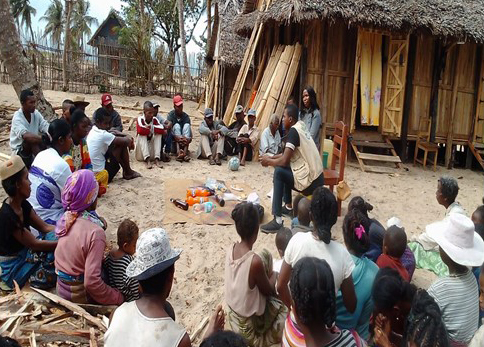
What do you see for the future of cash?
Looking at CVA community feedback, the increased users of CVA as a response modality including governments’ Social Protection Programs, and given the fact that CVA is getting used in different sectors WASH, Health, etc, CVA will occupy a high percentage in humanitarian response compared to in-kind/Cashplus. Also, as CVA is evolving, some investments in CVA learning are still a need to increase the number of staff with CVA skills and expertise. In addition, good inter-agency coordination will continue to be the key to success for operations with CVA as a response modality.
Any final thoughts?
Cross-cutting themes, such as Community, Engagement, Accountability (CEA), and Protection, need to be considered when designing a CVA program for effective operations. It has been reported that there are some differences in how different categories of households (households with women, people living with disabilities, etc) spend the money they are given to tailor to their specific needs.

